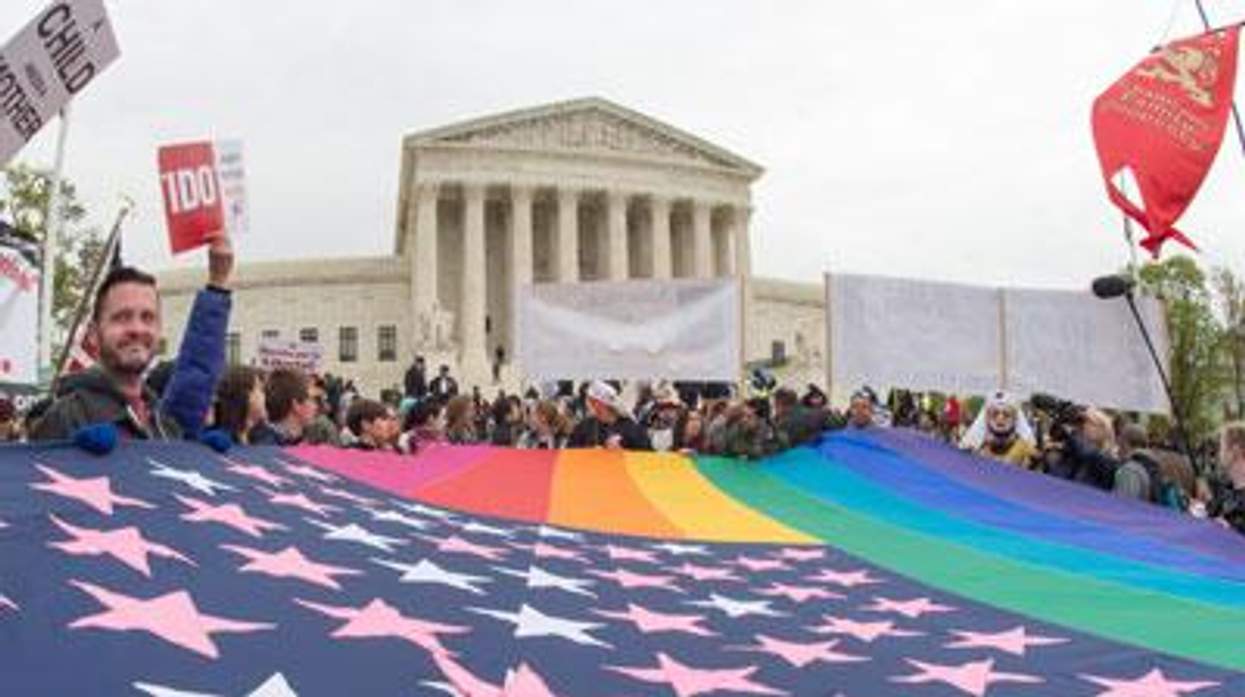The briefs are filed; the protest permits are locked in; the line-standers are camping out; and the Ruth Bader Ginsburg is picking up her lace collar from the dry cleaner.
Tomorrow's oral argument is like opening night of a show that's been in rehearsal for decades. From the early marriage activism of the 1970s to the strategizing of the '80s; from the courtroom struggles of the '90s to the surge in public support in the new millenium; now, at last, marriage equality could become a full national reality.
Oral argument before the Supreme Court will take only a few hours on Tuesday morning, and hinge on an important question: whether marriage equality for gays and lesbians is a new right, or whether it's an aspect of the existing right to marry. The couples argue that the Supreme Court has already recognized marriage as a fundamental freedom, and states cannot impose arbitrary restrictions on that freedom. The four states before the court argue that federal law has only recognized marriage as fundamental for straight couples -- a claim that echoes the racist arguments against overturning interracial marriage laws in the 1960s.
The justices will hear the case just a few days after a new survey shows public support for marriage equality rising to new heights. A new Washington Post/ABC survey puts support at 61 percent to 35 percent opposed. That's close to a complete reversal from just a decade ago.
Watch this preview of what will happen:




































































Charlie Kirk DID say stoning gay people was the 'perfect law' — and these other heinous quotes